“Se estrechará”: estrategias creativas para re-ensanchar la educación queer entre pares. Anne Harris and David Farrington
Resumen
Al utilizar etnografías de la performance colaborativa en ambientes comunitarios y escolares, la educación sexual adquiere un potencial para desafiar narrativas de riesgo para jóvenes lesbianas, gays, bisexuales, transgénero, intersexuales y queer (LGBTIQ). Este artículo problematiza el proyecto teatral realizado por jóvenes llamado Epic Queer para comprobar el potencial “queer” de iniciativas a cargo de jóvenes en ambientes escolares y comunitarios, y para rechazar la singularidad de las narrativas victimizantes y “en riesgo” tan predominantes en el área de educación sexual internacional con respecto a la juventud queer. Al utilizar el proyecto “It Gets Better” (“Mejorará”, como se lo conoce en español) como un ejemplo de textos provenientes de redes sociales que cuentan con una alta difusión pero a su vez generan restricciones fomentando normatividad, la postergación de la satisfacción y una narrativa feliz, este artículo sostiene el potencial del compromiso a partir de una actuación artística para re expandir las subjetividades de la juventud queer.
Palabras clave
Texto completo:
PDFReferencias
Ahmed, S. (2010). The promise of happiness. Durham: Duke University Press.
Albury, K. (2013). Young people, media and sexual learning: rethinking representation. Sex Education, 13(Sup1), S32-S44. doi:10.1080/14681811.2013.767194
Beck, J. L., Belliveau, G., Lea, G. W., & Wager, A. (2011). Delineating a Spectrum of Research-Based Theatre. Qualitative Inquiry, 17(8), 687-700. doi:10.1177/1077800411415498
Cavanagh, S. L. (2007). Sexing the teacher: school sex scandals and queer pedagogies. Vancouver: UBC Press.
Corey, F. (2006). On Possibility. Text & Performance Quarterly, 26(4), 330-332.
Denzin, N. K. (1997). Interpretive ethnography: ethnographic practices for the 21st century. London: Sage.
Denzin, N. K. (2003). Performance ethnography: critical pedagogy and the politics of culture. London: Sage Publications.
Depalma, R. (2013). Choosing to lose our gender expertise: queering sex/gender in school settings. Sex Education 13, (1), 1-15. doi:10.1080/14681811.2011.634145.
Ferfolja, T. (2012). Sexual diversity, discrimination and ‘homosexuality policy’ in New South Wales' government schools. Sex Education 13(2), 159-71. doi:10.1080/14681811.2012.697858.
Mapping the Right to Education for LGBT/ DESPOGI. GALE (Global Alliance for LGBT Education). (2012). Accessed May 4, 2013. http://www.lgbt-education.info/cgi-bin/quickscan.cgi? txt¼mapping_en.
Goltz, D. B. (2013). It Gets Better: Queer Futures, Critical Frustrations, and Radical Potentials. Critical Studies in Media Communication 30(2), 135-51. doi:10.1080/15295036.2012.701012.
Gray, E. (2013). Coming out as a lesbian, gay or bisexual teacher: negotiating private and professional worlds. Sex Education 13(6), 702-14. doi:10.1080/14681811.2013.807789.
Grisham, K. (2012). From One White Gay Male to Another: Calling out the Implicit Racism in Dan Savage's 'Liberal' Politics & the 'It gets better' Campaign. The Feminist Wire. February 28, 2012. Accessed August 17, 2013. http://www.thefeministwire.com/2012/02/from-one-white-gay-male-to-another-calling-out-the-implicit-racism-in-dan-savages-liberal-politics-the-it-gets-better-campaign/.
Harris, A. (2012). Blame it on Tyra: race, refugeity and sexual representation. Sex Education, 12(1), 79-94. doi:10.1080/14681811.2011.601167
Harris, A. (2013). Animating failure: digital collaboration at the intersection of sex, race and culture. Continuum, 27(6), 812-824. doi:10.1080/10304312.2013.794193
Harris, A. (2012). The Ellen DeGeneration: nudging bias in the creative arts classroom. The Australian Educational Researcher, 40(1), 77-90. doi:10.1007/s13384-012-0079-3
It Gets Better Project | Give hope to LGBT youth. (2012). Retrieved May 07, 2017, from http://www.itgetsbetter.org/
Jiménez, K. P. (2009). Queering classrooms, curricula, and care: stories from those who dare. Sex Education, 9(2), 169-179. doi:10.1080/14681810902829638
Jones, T. M., & Hillier, L. (2012). Sexuality education school policy for Australian GLBTIQ students. Sex Education, 12(4), 437-454. doi:10.1080/14681811.2012.677211
Peterson, L. (2010). Where is the Proof that it Gets Better? Queer POC and the Solidarity Gap. Retrieved August 20, 2013, from http://www.racialicious.com/2010/10/19/where-is-theproof- that-it-gets-better-queer-poc-and-the-solidarity-gap/
Puar, J. (2010, November 16). In the wake of It Gets Better | Jasbir Puar. Retrieved June 5, 2013, from https://www.theguardian.com/commentisfree/cifamerica/2010/nov/16/wake-it-gets-better-campaign
Quinlivan, K. (2012). Popular culture as emotional provocation: the material enactment of queer pedagogies in a high school classroom. Sex Education, 12(5), 511-522. doi:10.1080/14681811.2011.627728
Quinlivan, K. (2013). The methodological im/possibilities of researching sexuality education in schools: working queer conundrums. Sex Education, 13 (Sup1). doi:10.1080/14681811.2013.796288
Robinson, K. (2011). In the Name of ‘Childhood Innocence’: A Discursive Exploration of the Moral Panic Associated with Childhood and Sexuality. Cultural Studies Review, 14(2), 113. doi:10.5130/csr.v14i2.2075
Rofes, E. (2010). Opening Up the Classroom Closet: Responding to the Educational Needs of Gay and Lesbian Youth. Harvard Educational Review 59(4), 444-454. doi:10.17763/haer.59.4.31183h6345747510
Rooke, A. (2009). Queer in the Field: On Emotions, Temporality, and Performativity in Ethnography. Journal of Lesbian Studies, 13(2), 149-160. doi:10.1080/10894160802695338
Solomonov, A. (2013). Queer Identity and Travel Agency: Place-Based Arguments in the It Gets Better Project. Retrieved from http://content.lib.utah.edu/cdm/ref/ collection/etd3/id/1821 Unpublished thesis
Sykes, H., & Goldstein, T. (2004). From performed to performing ethnography: translating life history research into anti‐homophobia curriculum for a teacher education program. Teaching Education, 15(1), 41-61. doi:10.1080/1047621042000179989
Talburt, S., & Rasmussen, M. L. (2010). After-Queer Tendencies in Queer Research. International Journal of Qualitative Studies in Education,23(1), 1-14.
Taylor, J. (2014). Queerious youth: An empirical study of a queer youth cultural festival and its participants. Journal of Sociology, 50(3), 283-298. doi:10.1177/1440783312451781
Tseng, J. (2010, October 3). Does it Really Get Better?: A Conscientious Critique. Retrieved August 12, 2013, from http://www.bilerico.com/2010/10/does_it_really_get_ better.php
Walsh, C. (2012). Docile Citizens? Using Counternarratives to Disrupt Normative and Dominant Discourses. Transforming Practice: Critical Issues in Equity, Diversity and Education, edited by J. Soler, C. Walsh, A. Craft, J. Rix, and K. Simmons. 125-135.
Wells, K. (2010). Generation Queer: Sexual Minority Youth and Canadian Schools. Education Canada, 48(1), 18-23.
Winterson, J. (2010). Why be happy when you could be normal? London: Vintage.
Youdell, D. (2011). School trouble: identity, power and politics in education. London: Routledge.

Este obra está bajo una licencia de Creative Commons Reconocimiento-NoComercial-CompartirIgual 4.0 Internacional.
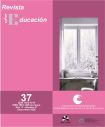 |
ISSN 1853-1318 (impresa) - ISSN 1853-1326 (en línea)
|
| Indizada en: | |
 | CCPP Catálogo Colectivo de Publicaciones Periódicas http://ccpp.caicyt.gov.ar/cgi-bin/koha/opac-detail.pl?biblionumber=149451 |
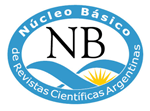 | Núcleo Básico de Revistas Científicas Argentinas, Caicyt http://www.caicyt-conicet.gov.ar/sitio/revista-de-educacion/ |
 | Google académico (en proceso de actualización) |
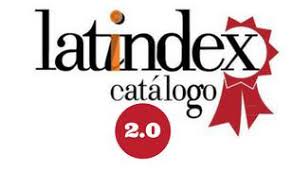 | Latindex https://www.latindex.org/latindex/ficha/14316 |
 | Redib http://redib.org/Record/oai_revista1003-revista-de-educaci%C3%B3n |
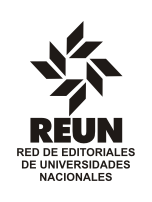 | REUN https://www.reun.com.ar/ |
 | DOAJ Link/ |
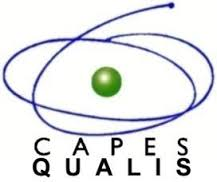 | Capes Qualis Link/ |
 | Journals for Free Link/ |
 | Latinoamericana (Asociación de Revistas Académicas de Humanidades y Ciencias Sociales) Link/ |
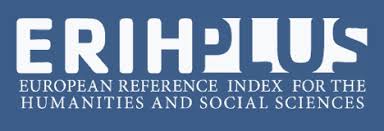 | ERIH PLUS (European Reference Index for the Humanities and Social Sciences) Link/ |
 | ROAD (Directory of Open Acces Scholarly Resources) Link/ |
 | Directory of Research Journals Indexing (DRJI) Link/ |
 | LatinRev Link/ |
| Esta revista utiliza el Identificador Persistente | |
.png) |


